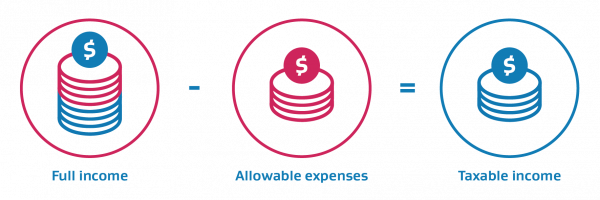
Managing your finances
When you’re contracting or self-employed, cash flow is king. Staying on top of your finances and planning for gaps in work will help you weather the quiet times and reduce stress. Find out how with these stress-free tips.
Stay on top of invoicing
Invoice clients as soon as you’ve completed a job, or at regular intervals depending on the length of your contract and what you’ve agreed.
Think about using online accounting technology to send out invoices and track when they’ve been paid. If you provide a service and are likely to be with customers after you’ve done work for them, eg fixing a washing machine, think about using a mobile app to get paid straight away. Make sure you also give them a tax invoice including your GST details — you’ll need a copy for your tax records.
Use our invoice template. You can edit it on your computer or smartphone — just enter the details and it will do the sums for you.
Payment terms
If you’re contracting through an agency, it may ask you to send in an invoice at a set time, eg each week or month.
If you contract directly to a client, negotiate your payment terms up front. Put the terms on your invoice, eg the hourly rate, payment is due seven days from the date of this invoice.
It’s common for businesses to ask to be paid for work they’ve done that month on the 20th of the next month. For example, if you do a job on March 12, you would ask to be paid on April 20.
Keep track of who's paid
To have a healthy cash flow you need to know who’s paid your invoices and who hasn’t.
If you have more than one client, set up a system so you can easily see who’s paid their invoices. If spreadsheets aren’t your thing, writing ‘paid’ and the date on the invoice and filing it away will help you keep track. Online accounting software can help with this, too.
Having a buffer of 3 months income will take the stress out of gaps between work.
Record your hours
If you’re contracting though an agency, you’ll be expected to fill in timesheets that break down the hours you work. These will be used to bill the client.
Check when your agency does its pay run and make sure you get the client to sign off your timesheets in good time.
Even if you don’t have to do timesheets, it can be a useful discipline. Write down your hours as you go instead of trying to remember at the end of the day or week. Better still, use a smartphone app — there are several on the market and many are free.
You’ll need to decide how you’ll charge for your time — eg by the hour, half day, full day or week — and put it in your contract for service.
Set money aside for tax and ACC
Put away enough money regularly, eg when your invoices are paid, to pay your income tax, ACC and — if you’re registered — GST. Keep the money in a separate account so you don’t spend it by mistake. Think about opening a high interest account and put the interest towards other contracting costs, eg indemnity insurance.
There are several ways you can reduce your tax bill, including claiming expenses and getting a discount for paying tax early. A good first step is to think about hiring a tax agent, eg an accountant — their knowledge can save you time and money.

Introduction to taxes and levies
Banking tips
Open an account for tax
Putting money in a separate account for income tax, ACC and — if you’re registered — GST, makes it less likely you’ll spend it.
It’s a good idea to have a business account so you can keep your contracting and personal expenses apart. You can claim business account fees as an expense.
Getting a loan
Getting a loan, eg a mortgage, can be tricky if you’re not a permanent employee. Some banks will ask you for two years’ tax records. Others have provisions for people whose income goes up and down — but interest rates may be higher.
Talking to your bank is key. Let it know you’re contracting and ask what records you’ll need to provide.
Think about setting up an overdraft for quiet times — and make sure you do it before you need it.


